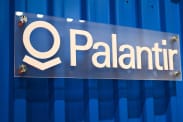John Malone’s Liberty Media empire is complex and frustrating. But recent moves could make investing in it less of a headache, providing an opportunity for investors willing to wade into the stocks.
Malone probably controls more sizable publicly traded companies than any individual, and he has a strong record of delivering for investors over more than four decades. Still, the past few years have been disappointing, as media, cable, and satellite stocks have struggled.
Shares of Liberty SiriusXM (ticker: LSXMA), Liberty Broadband (LBRDA), and Liberty Global (LBTYA), three of the largest Malone-controlled companies, are all in the red over the past four years, while the S&P 500 index has returned 13% annually.
“After a few years of relative inactivity, there suddenly is a lot going on.”
— Chris Marangi, Gamco InvestorsNow is a good time to take a fresh look at the Malone empire, which includes such well-known entities as the Atlanta Braves, Formula One, and the QVC shopping network. Like Berkshire Hathaway’s (BRK.A) Warren Buffett, Malone is a patient business builder. Unlike Buffett, who has assembled a much bigger empire all under one roof, Malone likes to create pure-play companies to facilitate sales. And unlike Buffett, who prefers to hold for the long term, Malone is willing to sell at the right price—and has regularly done so in his career. “The store is always open,” he has said over the years.
With Malone having turned 82 in March, there could be greater impetus for him to sell or merge businesses, moves that would benefit investors. A series of recent moves to simplify and streamline the structure of Liberty Media, Malone’s chief investment vehicle, may herald some of these developments.
“After a few years of relative inactivity, there suddenly is a lot going on,” says Chris Marangi, a portfolio manager at Gamco Investors, a holder of many Liberty companies. “We could see a path to resolution of many of these companies in the relatively near term.” Liberty declined to comment.
The range of Malone companies is impressive—and complex. The Liberty companies typically have three classes of stock: Class A voting stock, with a single vote each; Class B stock, which has 10 votes each; and nonvoting shares, with a “K” at the end of their ticker symbols. Most of the B shares are owned by Malone, which allows him to control the various companies through small amounts of ownership.
If that weren’t complicated enough, the list of companies controlled by Malone is daunting. Liberty Media owns the Formula One racing business; an 83% stake in Sirius XM Holdings (SIRI), the leading satellite radio company; and 30% of Live Nation Entertainment (LYV), the top concert promoter and ticketing company. Malone also controls Liberty Broadband and Liberty Global, a leading European cable and telecom company.
Then there are the much smaller—and dicier— Qurate Retail (QRTEA) and Liberty TripAdvisor Holdings (LTRPA). These two companies are controlled by Greg Maffei, 63, Malone’s longtime business partner and the current CEO of Liberty Media.
There are attractive assets there, but Malone doesn’t make it easy for investors. Take Liberty Media. There is no all-encompassing Liberty stock, just multiple tracking stocks, which offer investors the economics of a business but not the actual assets. They aren’t popular with investors for that reason, and they can trade at large discounts to their asset value. Malone uses trackers when accounting rules make it difficult to create regular corporate entities in a tax-friendly way.
There now are two Liberty Media tracking stocks. The first is Liberty SiriusXM, trading under the tickers LSXMK and LSXMA, which holds the Sirius XM stake, worth $15.4 billion, and a 30% stake in Live Nation, worth $6.2 billion. Then there is Liberty Formula One, which trades under FWONK and FWONA and holds the auto racing business. A third, Atlanta Braves Holdings, owns the baseball team and is traded under BATRK and BATRA. It was just converted into an asset-based security.
Malone's Muddle
The Liberty empire is sprawling and complex but offers opportunity for investors willing to pick and choose among the cable companies, sports teams, and other businesses that make it up.
| Liberty Media companies | ||||
|---|---|---|---|---|
| Company / Ticker | Recent Price | YTD Change | Market Value (bil) | 2023E EV/Ebitda |
| Liberty SiriusXM / LSXMK | $31.96 | -18.3% | $10.4 | N/A |
| Liberty Formula One / FWONK | 71.58 | 21.8 | 16.5 | 25.3 |
| Atlanta Braves Holdings / BATRK | 37.55 | -11.7* | 2.4 | N/A |
| Other Liberty companies | ||||
| Company / Ticker | Recent Price | YTD Change | Market Value (bil) | 2023E EV/Ebitda |
| Liberty Broadband / LBRDK | $88.61 | 16.2% | $12.9 | N/A |
| Liberty Global / LBTYK | 19.63 | 1.0 | 8.1 | 6.0 |
| Qurate Retail / QRTEA | 1.00 | -38.7 | 0.4 | 5.2 |
| Liberty TripAdvisor Holdings / LTRPA | 0.76 | 12.9 | 0.2 | N/A |
| Related companies | ||||
| Company / Ticker | Recent Price | YTD Change | Market Value (bil) | 2023E EV/Ebitda |
| Sirius XM Holdings / SIRI | $4.81 | -17.6% | $18.6 | 10.4 |
| Charter Communications / CHTR | 400.99 | 18.3 | 70.3 | 7.6 |
*Price change since spinoff on July 19. N/A=not applicable. E=estimate
Source: Bloomberg
More changes are coming. Liberty SiriusXM will split into two trackers on Aug. 3, with Liberty SiriusXM continuing to hold the Sirius XM interest, and Liberty Live Nation, trading under LLYVA and LLYVB, to hold the Live Nation stake. Liberty SiriusXM shares, at about $32, amount to a cheap play on Sirius XM. They trade at a more than 40% discount to the current value of the Sirius XM and Live Nation stakes once $3 billion in debt is removed from the equation. The discount had stood at about 35%—in line with the average of the past few years—before Sirius XM stock surged from $4.50 in late June to nearly $8 on July 20 on a short squeeze before falling back to below $5.
There is a lot to like about Liberty SiriusXM. The underlying asset, Sirius, is a slow-growth story with an older subscriber base that looks richly priced at about 11 times projected 2023 Ebitda—a 50% premium to Comcast (CMCSA) and Charter Communications (CHTR). Yet it has a fan in Buffett, whose Berkshire Hathaway is the largest holder of the Liberty SiriusXM tracking stock with a 20% stake and is said to play the Siriusly Sinatra station in his Cadillac.
Several analysts are bullish on Liberty SiriusXM, arguing that the tracker is very cheap relative to the value of the Sirius stake, allowing investors to buy Sirius for less than $3 a share through the tracking stock. Citigroup analyst Jason Bazinet reiterated a Buy recommendation recently on Liberty SiriusXM, arguing that the split of the tracker “will reduce complexity” and narrow the discount to net asset value. He has a price target of $46 on the shares.
Liberty Media’s goal is probably to combine Liberty SiriusXM with Sirius on a tax-free basis. That would result in a big gain for Liberty SiriusXM holders, although the timing and amount of the windfall are unclear. The huge discount of Liberty SiriusXM to the value of its Sirius stake complicates that potential combination but doesn’t preclude it.
Newsletter Sign-up
There’s also debate about how the new Live Nation tracking stock will trade. Analysts expect it to trade at some discount to the value of its stake in Live Nation—the question is how much. Bazinet says it could be just 15%, while Evercore ISI analyst Vijay Jayant thinks it could be wider than that. Given the large discount, it could be a nice play on Live Nation, which has gained 28% this year.
Things get simpler when dealing with the Atlanta Braves, one of the best-run—and best-performing—professional sports teams. The nonvoting Braves shares have gained 16% this year, to $37.55, but there could be more upside if the team gets sold in a hot market for professional sports teams.
Marangi thinks the Braves are worth $3 billion—in line with the sale of a minority interest in the Philadelphia Phillies—and that would imply a price on the stock of about $54 a share.
“You’re buying the team for an implied price of about $2 billion,” says Marangi, when factoring in debt and value of a real estate development called the Battery around Truist Field, where the Braves play.
Liberty also scored with its 2017 purchase of the Formula One auto business. It has boosted profitability through more lucrative sponsorships, advertising, TV rights, and running more races.
Liberty enhanced the sport’s popularity by working with Netflix (NFLX) on the popular Formula 1: Drive to Survive series. A first-time race in Las Vegas in November that will take place in and around the Strip could generate huge attention and fan interest. “Liberty has turned around the sport,” says Jayant, who has an Outperform rating.
Formula One isn’t cheap, trading with a roughly 4% free-cash-flow yield. But the contractual nature of its revenue reduces risk, and Liberty sees growth opportunities. A sale of Formula One could also come in the next few years, with Saudi Arabia, whose public investment fund has been active in sports including the LIV golf tour and soccer, a potential acquirer.
The nonvoting K shares, FWONK, trade at $71, while the less-liquid voting A shares, FWONA, trade around $64. The cheaper stock looks like the best play on the business.
Other businesses haven’t been as successful but still look attractive. Liberty Broadband owns a 26% stake in Charter, valued at about $20 billion, and an Alaskan cable-TV business worth around $3 billion. The shares amount to a discounted—and leveraged—play on Charter, whose shares, at about $400, are trading at half their 2021 peak amid competitive concerns and elevated capital spending. Liberty Broadband K shares fetch around $88, below their 52-week high of $121.
“Liberty Broadband is a cheaper way to own Charter,” says Jeffrey Wlodarczak, a Pivotal Research Group analyst with a Buy rating and $138 price. The current estimated discount is now about 25%, against an average of closer to 20% in recent years. Wlodarczak thinks that it’s inevitable that Charter merges with Liberty Broadband, which could collapse the current discount, but that a deal probably won’t be coming soon.
European cable TV, and telecom generally, have been another poor place to invest over the past five years due to competitive pressures. Shares of Liberty Global trade for about $19.50, down 25% in the past five years. Its biggest asset is a 50% stake in Virgin Media O2, one of the largest telecom, cable, and broadband services in the United Kingdom. Spain’s Telefónica (TEF.Spain) owns the other half.
Liberty Global’s high debt load hasn’t stood in the way of big stock buybacks, with the company repurchasing 8% of its shares in the first half of 2023 and about half of its stock since 2016. Jayant is bullish on Liberty Global due to its valuation of six times projected 2023 earnings before interest, taxes, depreciation, and amortization, or Ebitda. The company’s growth has slowed amid cord-cutting and reduced broadband growth.
Investing in Qurate Retail, the parent company of the QVC shopping network, takes a stronger stomach. Shares are down 60% in the past year to $1 and are down more than 90% from their 2021 peak, which Bazinet says in an analyst note reflects a 30% chance of bankruptcy.
Maffei said earlier this year that the company’s capital structure is sound. It has about $7 billion of net debt and preferred stock and is coming off a rough 2022, when a fire at a key distribution facility led to a 50% decline in operating profits. Given the dangers at Qurate, anyone betting on a turnaround should consider the company’s preferred stock (QRTEP), which offers equity-like returns and less risk due to investing alongside Malone, who owns $85 million of the shares in face value.
The less said about Liberty TripAdvisor, the better. The stock, which reflects ownership of about 20% of the online travel reviewer Tripadvisor (TRIP), is down 95%, to 75 cents, from a 2019 high of nearly $20.
Liberty TripAdvisor got nailed in 2020 when Tripadvisor plunged along with other travel stocks and Liberty TripAdvisor refinanced a margin loan with preferred stock on onerous terms. Based on an investor presentation, Liberty TripAdvisor has considerable debt and preferred stock relative to the value of its Tripadvisor stake. That makes the stock a risky bet—and one that it’s best to avoid.
Liberty TripAdvisor is an exception, though. For investors willing to wade into Malone’s vast and complex empire, there’s a lot to like.
Write to Andrew Bary at andrew.bary@barrons.com






